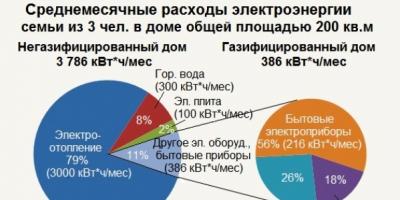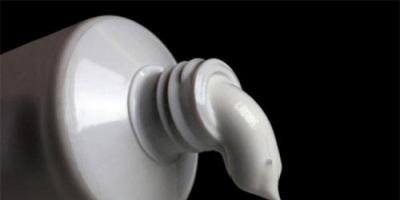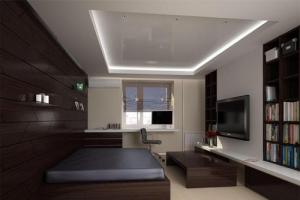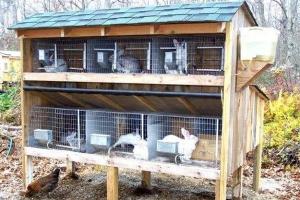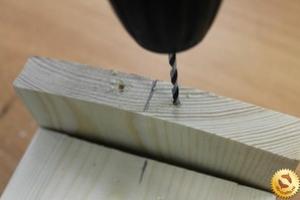The availability of natural gas even in the most remote corners of the country has led to the use of this energy carrier for heating private homes.
Single-circuit boilers running on natural gas heat the room evenly. And if we compare them with dual-circuit ones, then the former are more economical and more convenient in terms of installation and installation.
Types of single-circuit gas boilers for heating a private house
By installation method:
- Wall mounted: They have average power and are mounted on the wall, compact.
- Floor: require special installation, have high power, are durable, and mobile. They have an offline mode that allows the device to work while the person is away from home.

Photo 1. Floor-standing single-circuit gas boiler. A water heater is located next to the heating device.
Based on the principle of using thermal energy:
- Convection: air-gas mixtures are burned releasing heat, which is used to heat the room.
- Condensing: behind thermal energy an additional heat exchanger responds.
Important! When using convection boilers, it is worth remembering that part of the thermal energy will be lost during operation, since it will be burned along with the combustion products in which it is contained.
How the device works
The gas boiler consists of expansion tank, circulation pump, valves And other details.
Devices do not require any additional modifications, since they are equipped with everything for comfortable use and satisfactory performance.

Photo 2. Diagram of a single-circuit gas boiler. The arrows indicate the components of the heating device.
Scheme:
- The device has built-in sensors, which calculate the air temperature around and send a signal to the boiler. This signal shows how much heat is needed to heat the room.
- The water in the device reaches the set temperature through the burner And pushes out built-in pump.
- When the temperature reaches the desired level, the boiler will automatically turn off, until the degree begins to fall again.
Main technical characteristics
Power- the most important characteristic by which a single-circuit gas boiler is selected. Usually amounts to from 12 to 45 kilowatts. The area of the heated room depends on it. At maximum power the area will reach 250 square meters . And also the speed at which the room will be heated.
Combustion chamber type:
- Open: for such a combustion chamber, a vertical chimney is purchased, since the removal of all products and their disposal occur naturally - gases that have already been processed will exit through the chimney.

- Closed: here, on the contrary, recycling occurs forcibly, since an additional turbine is built into the device. The coaxial chimney helps to circulate air.
Heat exchanger type:
- Bithermic: It has two circuits, one of which is located inside the other, they are cheaper, but break down faster.
- Monothermic: It has two circuits, which are located at a certain distance from each other, their service life is longer because of this.
According to manufacturer, boilers are divided into:
- French. People look at such heaters if they are considering the middle price category, but with excellent quality. They are powerful, the cost reaches 50 thousand rubles
- Russian. The domestic manufacturer offers analogs of boilers, the price of which is only 15-20 thousand rubles By quality wall-mounted boilers worse, floor-standing units are not inferior to foreign brands. However, they are much cheaper.
- Czech and Italian. Can be purchased for 30 thousand rubles The quality is better than domestic ones, but inferior to French ones. Although noticeably cheaper to maintain.
- German. The best quality boilers. However, they are also more expensive about 80 thousand. These will last heating devices a very long time.
The following factors are also taken into account when choosing:

- Floor-standing boilers are noticeably more powerful than wall-mounted ones and heat a large area.
- Some devices should not be left unattended for long periods of time. Therefore, if you want to heat Vacation home Where you live only at certain times, make sure that the boiler will work even without you.
- Some types of boilers are subject to corrosion, for private homes this is a huge problem.
- Pay attention also to the type of combustion chamber. Devices with an open camera will be cheaper. However, this is a disadvantage for several reasons, the first of which is environmental. With the chamber open, you have to think about where the smoke will go. And this is additional effort.
- Residents of rural areas where gas has not yet been installed, it is important to pay attention to the permissibility of operation. The device must be equipped with the ability to operate on liquefied gas.
- Don’t forget about the self-diagnosis function, which is not present in all heaters, but it is very important. If there is a problem with the device, the device itself will determine what is wrong. By overpaying for this function now, you can save in the future on a technician who will charge money not only for repairs, but also for diagnosing the boiler.
You might also be interested in:
Features of operation
If there is not enough time to care for the device, then choose wall-mounted boilers. Such devices are easy to maintain and can be used immediately after installation. Floor-mounted ones require additional care.
Attention! Don't forget to connect all devices to the gas main during installation. This is the most common mistake during installation.
Rating of the best boilers
- Baxi Luna 3 Comfort.

The price of these boilers varies greatly and varies between from 40 to 100 thousand rubles. But, despite this, the efficiency of any of the devices exceeds 90% , and this is an advantage over other devices.
In boilers of this type, the predominant wall installation and a closed combustion chamber. The device is protected from pump blocking and overheating (automatic shutdown when a certain temperature is reached), which not every device has. Power 30 kW.
- Leberg Flamme 24 asd.
The heating device is standing 35 thousand rubles. Although the efficiency is 96% , this makes it one of the best on the market. There are only positive reviews for this device, since it is inexpensive and works satisfactorily. This boiler will become economical solution problems. Thermal power amounts to 20 kW, so it will take a long time to heat a large room. This is one of its significant disadvantages. Installation type: wall-mounted. The combustion chamber is closed.
- Mora Top sa 30 e.

Price - 60 thousand rubles, efficiency - 92% , this makes it inferior to the previous heater. Thermal output varies depending on the model from 18 to 25 kilowatts, so it will also heat the room for a very long time.
The installation is floor-mounted, the combustion chamber type is open, which is also a disadvantage in some way.
To choose a boiler for heating a private home, you need to take into account many factors. To do this, you need to have information about the main features of each type of boiler, their advantages and disadvantages.
How to choose a boiler for your home
When choosing a heating boiler, several factors must be taken into account. The first is which type of fuel is most affordable in your region. This means not only the price, but also the availability of this type of fuel in warehouses or the possibility of its production/purchase without any problems.
The second thing you need to pay attention to is the possibility of autonomous operation. If there is always someone in the house, this item can be omitted. But if during the work week everyone is at work or school, then it is better if the boiler for heating a private house can operate for a long time without human intervention.
The third factor is ease of use and necessity Maintenance. Not everyone and not always want to regularly visit the heating boiler. In this case, it is better to take the most automated version. Yes, they are more expensive, but they require minimal maintenance. As for maintenance - some types of fuel require regular cleaning - combustion chambers or burners. If you are not happy with this aspect, you should choose a boiler that requires minimal maintenance. These, by the way, are units that run on gas and electricity.
If there is gas
If there is a gas main near the house, it makes sense to consider purchasing a gas boiler. At the moment, in most regions, gas heating is the cheapest. At the same time, gas heating boilers They are autonomous - you don’t have to approach them for weeks, and practically do not require preventive maintenance. The only drawback of this solution is the considerable amount it costs to connect to the highway.

Types of gas boilers
Depending on the type of location, gas heating boilers can be wall-mounted or floor-mounted. Maximum power wall options- 60 kW, floor-standing units are also available 100 kW and more. In addition, some models can work in cascade. Why are wall mounted ones good? gas boilers? The fact that they can be installed in the kitchen, especially since the design matches.

A separate room is required for installation of a gas floor-standing boiler with a power of more than 60 kW. This can be a dedicated room in the house or an extension with a separate entrance - a boiler room. Read about the requirements for such premises for installing a gas boiler.

You can install a gas boiler even if there is no mains, but it is possible to buy liquefied gas. In this option, a floor-standing gas boiler is installed with a burner that can work with liquefied gas (usually reconfiguration is required). It’s difficult to say right away about the efficiency of such heating: you have to calculate how much 1 kW of heat costs when used available options fuel. Draw conclusions based on the calculation results.

Types of burners
Two types of burners can be installed in wall-mounted gas boilers - atmospheric (open) and turbocharged (closed). Atmospheric burners require a chimney with good draft; turbocharged burners are connected to a coaxial chimney, which can be led directly through the wall near the boiler.
These combustion chambers also differ in the way they select air for combustion. In open burners, air is taken from the room, therefore such rooms must be equipped with forced ventilation sufficient power. In closed combustion chambers, oxygen is supplied through one of the pipes of the coaxial chimney. Therefore, there are no special requirements for ventilation. But turbocharged boilers have their drawbacks: a chimney installed in the wall can become overgrown with frost, covered with snow, etc. In this case, the boiler does not turn on.

The main difference between wall-mounted gas boilers is the type of burner
When choosing a gas boiler, you should also pay attention to the number of positions in which the gas burner can operate. There are three modifications:
- Single stage. There are only two operating modes - full power and off. The cheapest burners, but the gas consumption is the highest, that is, such boilers are uneconomical to operate.
- Two-stage. There are two operating modes - 100% power and 50%. The third position is off. These burners are more economical and make it easier to maintain the desired temperature.
- Modulated. The most expensive, but also the most economical burners. Depending on the need, they can be turned on either at full power or at 10%, and the adjustment is smooth.
It is clear that in the long term, a boiler with a modulating burner is better for heating a private house. They are more expensive to purchase, but more economical during operation.
Condensing gas boilers
Above we discussed traditional gas boilers for heating a private home. They are also called high-temperature, since at the outlet they produce coolant with a temperature of 45-50°C and higher. Such units are ideal for working with radiator heating.
Condensing boilers are distinguished by the fact that they are effective when operating in low temperature mode - with a temperature in the return pipeline no higher than +40°C. In this case, gas is used most economically - due to the condensation of vapors contained in flue gases, more heat is transferred, which leads to a significant reduction in gas consumption.

Condensing gas boiler for heating a private house warm floors- perfect option
This feature of condensing boilers makes them ideal for home heating. This boiler for heating a private house can produce coolant at the outlet at +35°C, then the return temperature will be about +30°C. Due to this, heating will be economical.
But, as usual, there were some drawbacks. The first is that the condensate formed is very caustic. Therefore, install the chimney only from of stainless steel, and of high quality. The second disadvantage is that the price of condensing boilers is higher than traditional boilers of the same capacity. This is due to more complex circuit and also due to the fact that condensation-resistant materials are used.
On electricity
If it is technically possible (a significant amount of kilowatts have been allocated), you can install an electric boiler for heating a private home. In terms of ease of use it is better units. If there is electricity, they operate in the specified mode, are almost silent, and do not require maintenance. Their main disadvantage is the large sums that have to be paid for heating.

Types of electric boilers
Today there are three types of electric boilers for heating a private home:

In general, if you are thinking of installing an electric boiler for heating a private home, choose between a traditional heating element or an induction one.
A way to make heating cheaper
If there are multi-zone tariffs in the region and established use electric boiler for heating the house can be made not so expensive. To do this, install a large-capacity heat accumulator in the system. The water in it is heated during the nightly, lower tariff. During the day, during the expensive tariff, the boiler is turned off and the temperature is maintained by transferring the heat stored in the heat accumulator.

Solid fuel boilers
Despite all the shortcomings, solid fuel boilers are used in most cases for heating a private home. Probably, this is largely due to habit and tradition, but the fact remains that more solid fuel boilers are installed in our country than all others.

Basically, two types of solid fuel are used for heating - wood and coal. Whatever is easier to get and cheaper to buy is what is mostly heated. And boilers for coal and firewood must be used differently: in wood-burning boilers solid fuel boilers the loading chamber is made larger so that more firewood can be stored. In coal TT boilers, the firebox is made smaller in size, but with thicker walls: the combustion temperature is very high.
Advantages and disadvantages
The advantages of these units include:
- Inexpensive (relatively) heating.
- Simple and reliable design boilers
- There are non-volatile models that work without electricity.
Serious disadvantages:

Generally speaking, using a solid fuel boiler to heat a private home is an inconvenient solution. Although the purchase of fuel, as a rule, is relatively inexpensive, if you also count the time spent, it is not so cheap.
Long burning boilers
To increase the gap between fuel fills, boilers were developed long burning. They use two technologies:

How effective are these technologies? Quite effective. Depending on the design, one stack of firewood can burn from 6-8 to 24 hours, and coal - from 10-12 hours to several days. But to obtain such a result, it is necessary to use high quality fuel. Both firewood and coal must be dry. This is the basic requirement. When using wet fuel, the boiler may not even enter the smoldering mode, that is, it will not begin to heat. If you have a two to three year supply of firewood or a large shed in which coal is stored, a long-burning boiler for heating a private home - a good choice. Better than normal.
Liquid fuel
Heating boilers for private homes using liquid fuel are the least common. There are too many disadvantages to this type of heating:

In general, it makes sense to install an oil-fuel boiler for heating a private home if you have a free (or almost) source of fuel. In all other options, it is better to use other heating equipment.
Pellet boilers
Boilers operating on pellets are difficult to classify, so they are usually discussed separately. Fuel for this type of boiler - small sizes granules from compressed sawdust. A bunker is made near the boiler to store pellets. Its size determines the battery life of the equipment. If there is enough space, the bunker can be made to hold several tons of fuel. Minimum size— for a couple of buckets, which is enough for a day of work.

The pellet heating boiler is equipped with a special burner. Pellets from the bunker are automatically fed into the combustion zone, where they burn with virtually no residue. Normal quality granules produce only 3-5% ash. Therefore, cleaning is rarely required - once a week or even once every few weeks. The equipment is fully automated; with a sufficient supply of fuel, you can go weeks without visiting.
But even here there are some drawbacks. The first is the high price of equipment. The second is the demands on the quality of pellets. They should have low ash content, good calorific value, and should not break or crumble. Otherwise, a pellet boiler for heating a private home is a good choice. Another advantage is that waste from the wood processing industry is used.
Combination boilers
There is also such a modification of heating boilers as combined heating devices. The most popular option is a solid fuel boiler with several electric heating elements. Such units operate as TT equipment while the wood or coal is burning; when the fire goes out, the boiler cools down slightly, the electrical part turns on. In this case, heating elements are not able to fully heat the house, but they manage to support the system. That is, in the morning the house will not be cold. Yes and in case long absence Heating elements will prevent the system from freezing.

Another popular option is combi boilers TT with liquid fuel burners. Such units have two separate combustion chambers. One under solid fuel, the second - under the burner with liquid fuel.
The advantages of such boilers are obvious: you can use several types of fuel. The disadvantage is the high price and average efficiency - the efficiency of each part is not very high. So a combination boiler for heating a private house is a controversial decision.
So how do you choose a boiler for heating a private house?
To make it easier to navigate when choosing, let's systematize the information. Let's look at the most typical requirements that influence the choice of boiler type:

If you take into account the availability and affordability of fuel, making your choice is not difficult.
The heating boiler will provide the home with heat without the need to connect to central communications, resulting in cost savings and the ability to adjust the level of air heating when you have your own. This is why cottage owners often choose boilers as a means of heating. And for those who cannot connect to the central system at all, such a device becomes a real salvation. At the same time, you can select equipment according to various parameters and defining characteristics in each specific case. So which boiler is best for a private home?
Types of heating boilers
A boiler is a device that produces heat by processing a certain type of fuel. Installation may be different sizes, shapes, power, can be installed in different ways, and can also be made of various materials. Of course, all these indicators affect the cost of the device - there are budget boilers that cost only a few thousand, and there are also very expensive models costing more than 100 thousand rubles. At the same time, the price range varies from minimum to maximum among boilers of different types. What types of heating boilers are there and by what criteria are they classified?

Table. Classification of heating boilers.

To make it easier to decide on the choice of boiler, let’s get acquainted with their main types in more detail.
Double-circuit and single-circuit
Did you know that a heating boiler can not only heat the coolant in heating circuit from pipes laid throughout the house? The installation may well provide housing and hot water without purchasing a water heating boiler. The fact is that the unit can have two circuits - in one of them the water is heated for the purpose of heating buildings, in the other - in order to come from the taps, the shower is warm. Hence the name - double-circuit. A single-circuit boiler is used only to heat the coolant for heating buildings.
Single-circuit gas boiler - diagram
The advantage of a single-circuit boiler is that it is cheaper and easier to maintain, but purchasing and installing the unit and boiler separately will cost more than purchasing and installing a double-circuit boiler. The latter takes up quite a lot of space, but, again, no more than a boiler and a single-circuit unit.
Unfortunately, it will not heat large volumes of water, so it makes sense to buy it if DHW costs small. Otherwise, it’s easier to purchase a single-circuit boiler separately.
Fuel varies
As we noted earlier, boilers can operate at different types fuel. And here you should choose an installation based on the cost of fuel in a particular place - somewhere it’s cheaper to connect to gas, and somewhere it’s more profitable to use electricity or regular firewood. Also, in certain cases (for example, if connecting to a gas main is impossible), a certain type of fuel will be the only solution.
Gas boilers are rightfully considered the most economical, as they use natural or liquefied gas - one of the cheapest types of fuel. Moreover, the amount of heat released when burning this raw material is maximum compared to other types. relatively environmentally friendly - emissions into the atmosphere contain a minimum of air pollutants.
On a note! Gas boilers last quite a long time - for example, devices with a steel heat exchanger work for about 30 years, and with cast iron parts - all 50.
Another advantage of such a boiler is that there is no need to make a fuel storage facility, because the installation is connected directly to the gas main and takes fuel from there. And a person will not have to particularly control the combustion process - everything in the boiler is automated.
But connecting ) is not so easy: first you need to coordinate everything with the supervisory authorities, bring gas pipeline To home. And during installation, it is important to check the tightness of all connections and components to avoid leakage. At the same time, only those whose house can be connected to the gas main can use such a boiler.
Electric boiler
Boilers that run on electricity come in three types and differ from each other in their operating principles.
Heating elements new devices They have tubular heaters inside the structure, which provide heating of the coolant (water). Such installations are usually automated, have relatively small dimensions and are often wall-mounted. Their main drawback is the formation of scale on the heating elements.
Eat devices operating on electrodes, there are no heating elements inside them anymore. The water is heated by a conductive electrode. Such devices are inexpensive, and their sizes are also modest. Their main disadvantages are the inability to use antifreeze as a coolant, the need for control, and regular replacement of electrodes.
Electric boiler, can also be inductive, where the basis of operation is the so-called electromagnetic induction. By appearance such a device resembles a conventional transformer, which is located inside a welded housing. The induction coil does not come into contact with water, but during operation of the device, its core heats up and the resulting heat is transferred to the liquid that circulates around. The efficiency of the device is very high, as are its dimensions.
Attention! Electric boilers are not suitable for use in areas where there are frequent power failures. If the power goes out frequently, then either another type of installation or the construction of a generator is necessary.
In general, electric boilers are environmentally friendly, cheap, operate quietly, and are easy to use - they do not require much attention. There is also no need to install a chimney. But they spend quite a lot of electricity.
Solid fuel boiler
- This is the simplest option for heating equipment. In essence, this is an ordinary stove with a firebox and coolant. Fuel, which can be coal, firewood, sawdust, shavings, peat, fuel pellets, is placed in the combustion chamber, ignited by a burner and, burning, heats the coolant and water contained in it, i.e.
Kinds.
To install such a boiler in a house, you will have to equip a chimney, and also be prepared for the fact that the installation will have to be regularly cleaned of ash and soot. Without cleaning, the device will begin to give off heat worse, and in the future it will completely fail.
Choosing a boiler for heating a house
How can you choose a truly suitable boiler for heating a private home among such a variety of types? In fact, the secret is simple - you need to determine exactly why the boiler is being purchased and how much money the home owner has.
Step 1. The first step is to decide for what purpose the boiler is being purchased - just to heat the house? Maybe it makes sense to take a double-circuit heater that will also heat the water? Here, a lot depends on the number of people living in the house and the required volume of hot water. If it is consumed in too large volumes, then it would be optimal to buy a boiler and a single-circuit boiler separately. But in a house where the hot water supply will not be so intense, it is more economical and logical to install a double-circuit.
Step 2. Now you need to decide which type of fuel is cheapest to buy. Here, a lot depends on the region - somewhere wood is cheaper, somewhere it’s easier to install an electric boiler. But in any case, if a gas main is connected to the house, the choice should be made in favor of a gas boiler.
Step 3. Cast iron or steel? Home owners can choose according to their wishes and the thickness of their wallet. Of course, steel is easier to buy, but cast iron is better in terms of heat transfer. However, now boilers of the second type appear on the market less and less often. Therefore, it makes sense to still choose a steel boiler, but from high-quality metal.
Step 4. The noise level should also be assessed, as well as the possibility of installing a chimney in the house. Installation requirements vary for all types of boilers, and the installation capabilities of a particular type must be taken into account objectively.
Step 5. It is important to calculate the boiler power, which is necessary to fully heat a residential building, before purchasing. On average, for normal heating you need about 1 kW per 1 m2. But it is important to take into account the height of the ceilings, the size and number of windows, doorways and other holes. The need to heat water for domestic hot water in the case of a double-circuit boiler is also necessarily taken into account.
and the required power of the gas boiler
Natural gas is the cheapest energy carrier in Russia, so most people choose gas heating. Warmth and hot water can be obtained using a gas boiler. On sale you can find a huge number of various modifications of such equipment. Some of them are suitable for heating an apartment, while others are ideal for heating a large private house. Let's try to figure out which gas boiler is better for heating different types premises.
Which gas boiler is best to choose depends on many factors: weather conditions of the region, heated area, type of housing (apartment or a private house) etc. The main criteria by which the best boiler is determined are:
- power;
- number of circuits;
- fastening type;
- nature of coolant circulation;
- type of combustion chamber;
- type of heat sources.

Let's consider what criteria the best gas unit must meet.
What should be the power of a gas boiler?
For space heating different sizes units of a certain power are required. The required performance is calculated based on the rule - to heat 10 m² you will need 1 kW. If you also want to receive hot water, then the power reserve is increased by 20-30%. Also, the optimal performance indicator may vary depending on weather conditions, the thermal insulation of the house and the presence of additional systems.
The performance of a gas boiler depends on the operation of the gas burner. They can be:
- single stage;
- two-stage;
- modulating.
Single-stage ones are capable of maintaining fire in only one mode. Gas boilers equipped with such burners are not economical, but they are inexpensive. To save fuel and pay less for it, you should opt for a unit with a two-stage or, even better, a modulating burner. The first option has two levels of operating power, and the second has several performance levels (from 5 to 10). Modulating or multi-stage burners increase the efficiency of the boiler and significantly save gas.

Which is better - a single-circuit or double-circuit boiler?
Single-circuit gas boilers are intended for heating only. Double-circuit units are capable of producing heat and hot water. However, the volume of heated liquid produced by boilers with two circuits is often not enough. If it is needed a large number of water for showering and bathing, you will have to buy an indirect heating boiler. It can be connected to both a double-circuit and a single-circuit unit. The second option will be cheaper than the first. In addition, a boiler system with a single-circuit unit is more reliable and durable.
It is impossible to say unequivocally which gas boiler is better for heating - single-circuit or double-circuit. It all depends on the need for hot water and the personal preferences of the consumer.
Mounting type
According to the type of fastening, gas boilers are divided into:
- wall;
- floor
Wall-mounted gas units are compact in size, but their power rarely exceeds 35 kW. Thus, the most powerful wall-mounted boilers can only heat a room up to 320 m². But they easily fit into any interior and can be hung even in a small kitchen or bathroom.

Floor standing gas boilers have big sizes, so you'll have to look for them appropriate place, and for models with an open combustion chamber - a separate room. Stationary units are more expensive, but they can also heat larger areas than their wall-mounted counterparts.
Which is better - a floor-mounted gas heating boiler or a wall-mounted one is determined depending on the type of living space. For heating an apartment, especially small area, a compact wall-mounted unit will suffice. To heat a large private house or production room, the best option- floor-standing gas boiler.
Natural or forced coolant circulation
Gas boilers differ in the type of coolant circulation. It can be natural or forced. In the first case, the coolant moves in the heating system due to the pressure that is formed in it at a certain location of the boiler, radiators and expansion tank. This option is non-volatile and is ideal for regions where power outages occur frequently. Such units are equipped with an atmospheric burner, so they can only be placed in a separate room with good ventilation.
In gas boilers with forced circulation The coolant moves due to a pump that is powered by electricity. Such units often use turbocharged gas-burners, which do not require a combustion device. Their efficiency is significantly higher than that of non-volatile systems. The disadvantage of boilers with forced circulation of coolant is that they will not be able to heat the room during a power outage.

If in the locality where you live the power is rarely turned off, then it is better to purchase a device with forced circulation of coolant. If the electricity is turned off frequently, then best option– a system with natural coolant movement.
Features of open and closed combustion chambers
Gas boilers can be equipped with open or closed combustion chambers. Units of the first group are called atmospheric - their installation requires a separate room, since with this type of combustion chamber the burner uses air from environment and flue gases also enter the room in which the unit is located. Boilers with an open combustion chamber require the installation of a traditional vertical chimney for smoke to escape into the street. The efficiency of atmospheric devices is low and amounts to 76-85%.
Gas boilers with a closed combustion chamber are also called turbocharged. They do not require a separate boiler room and a classic chimney. To remove combustion products, it is enough to install a coaxial pipe with an outlet through the wall. Turbocharged models can be placed in the hallway, pantry, kitchen or bathroom. They take combustion air not from the room, but from the street through a coaxial chimney and have a high efficiency = 88-95%.
Many are lost in choosing which gas boiler is better for heating a home - atmospheric or turbocharged. If you are purchasing such a unit for the first time, then it is better to opt for a device with a closed combustion chamber, since it uses fuel more economically and you don’t have to spend money on installing a boiler room and a full-fledged smoke exhaust system.
If the boiler is purchased to replace an old atmospheric unit in an already equipped furnace room equipped with a chimney, then it will be more profitable to purchase a similar model.
Note! There are two options in which it is possible to use only one type of combustion chamber. First, in the case of installing a non-volatile system, only a device with an open chamber is suitable. Second, only a turbocharged gas boiler is allowed to heat the apartment.How do convection boilers differ from condensing boilers?
Depending on the type of heat source, gas boilers are either convection (ordinary) or condensing. The former use only the energy obtained from gas combustion. The latter, in addition to the traditional source, receive heat from condensate, which is collected on a heat exchanger.
Convection gas boilers are cheaper, more versatile and easier to operate. Condensing units are characterized by high efficiency = 96-99%, significantly save fuel, but also cost an order of magnitude more.
Note! Condensing units can operate with maximum savings only at a coolant temperature of 50-60ºC.Which gas boiler manufacturer is better?
During the selection process, the consumer has a question about which manufacturer produces the best gas boilers for heating. Reviews and ratings show that the most reliable and durable units are those produced by the German companies Vaillant, Viessmann, Buderus. They are also leaders in the production of condensing-type gas boilers. Vaillant and Viessmann produce a record number of condensing units and are constantly improving their technology. However, the cost of German heating devices is quite high, as is the price of their repair. Therefore, the majority of consumers prefer gas heating boilers from Italian or Czech companies. For example, devices of the brands Baxi, Ariston, Protherm, Thermona are cheaper than their German counterparts, and are almost as good in quality.

Gas boilers from domestic manufacturers Neva Lux, Lemax, Borinskiye, and CONORD are also popular. Of course, they are somewhat inferior to foreign models in terms of build quality and quantity additional functions, but the units Russian production affordable, unpretentious to the quality of fuel and water, and also resistant to voltage surges. In addition, for domestic products it is easier to find components and their repair will be cheaper.
The best batteries for a gas heating system
The gas heating system has features that create certain requirements for radiators:
- low operating coolant pressure;
- the presence of a closed circuit, which eliminates pressure drops and water hammer in the system;
- use of high-quality coolant.
Which heating batteries are best for a gas boiler? Bimetallic and cast iron must be immediately excluded. They are good for centralized system, but not for gas - cast iron takes too long to heat up and this significantly reduces the efficiency of the boiler, and the use bimetallic radiators in this case it is not economically feasible. Thus, only aluminum batteries. They are considered the best for a gas heating system, but when choosing and installing, you should take into account operational details.
On to the cons aluminum radiators relate:
- fear of water hammer;
- susceptibility to corrosion.
But in gas system both of these problems can be easily solved: the presence of the first is simply excluded, and the second is solved by installing a filter on the input tap water into the boiler.

The advantages of aluminum batteries combine them perfectly with a gas unit:
- able to heat up and cool down quickly;
- do not require a large volume of coolant;
- weigh little;
- easy to install.
It is important to calculate correctly required amount radiators. To do this, you should pay attention to the heat transfer of one section. It is believed that 100 W of energy is needed to heat 1 m². To compensate for certain heat losses, another 10-15% of the obtained figure is added.
To eliminate corrosion processes, it is necessary to connect the boiler and radiators using plastic pipes. When installing a heating system, it should be taken into account that aluminum is capable of releasing hydrogen gas - this occurs when the metal reacts with water, oxygenated. Therefore, do not forget about installing a Mayevsky tap to remove excess gas.
As for choosing a manufacturer of aluminum radiators, the quality of products from Russian companies is in no way inferior to foreign ones, but they are an order of magnitude cheaper.
The optimal choice of heating device for a private home is floor-mounted. It is capable of heating a room up to 600 square meters.
The only disadvantage in comparison with the wall-mounted unit () is that the floor-standing unit requires a separate room for installation (). But in terms of price/power ratio, floor-standing models outperform wall-mounted ones.
What kind of floor gas systems exist for heating a private home, how to choose?
What to look for when buying
Based on the material of manufacture, a cast iron boiler is preferable. It has higher wear resistance and corrosion resistance than steel, and greater inertia.
A steel boiler lasts an average of 15 years, a cast iron boiler lasts half a century. Steel is preferable for wall mounting, because... its mass is less. For a floor-standing unit, weight does not matter.
Floor-standing gas heating boilers - which one is better in terms of design and technical characteristics? The main criteria are power, efficiency, reliability, ease of use, cost.
Structurally, the boilers differ:
- by the number of circuits;
- by type of burner and chimney;
- by type of heat exchanger;
- by type of automation.
Selection by power
 Power depends on the area of the house. Usually they start from the figure of 1 kilowatt per 10 square meters plus a correction factor for the region. For dual-circuit models add another 25% ().
Power depends on the area of the house. Usually they start from the figure of 1 kilowatt per 10 square meters plus a correction factor for the region. For dual-circuit models add another 25% ().
The efficiency and reliability of the boiler depend on the features of power regulation. The adjustment can be two- or one-stage.
There is also a third, most economical option– modulating burner. Provides smooth adjustment and minimizes fuel consumption.

Selection of burner and combustion chamber type
 The burner can be atmospheric or fan (). In the first case, the firebox is open, oxygen for combustion comes from the room, and smoke escapes through the ceiling through a standard chimney.
The burner can be atmospheric or fan (). In the first case, the firebox is open, oxygen for combustion comes from the room, and smoke escapes through the ceiling through a standard chimney.
Boilers are equipped with fan burners closed type: air is pumped by a built-in fan through a coaxial pipe from the street, and combustion products are discharged through the same pipe.
Fan burners not only work more efficiently, but are more resistant to pressure changes in the gas line.
According to the type of inclusion, burners are distinguished between piezo and electric ignition. In the first case, the pilot light is constantly on when the boiler is operating, in the second it is triggered when fuel is supplied to the burner.
Second burners are more economical, but they require electricity. So it will be necessary network filter or a stabilizer to protect against voltage surges and interference.
Automation
 An automatic heating boiler control system can be volatile (powered by electricity) or mechanical ().
An automatic heating boiler control system can be volatile (powered by electricity) or mechanical ().
Advantages of the first type: ease of operation, fuel efficiency, many useful functions(self-diagnosis, displaying user information on the display, etc.).
Minuses– the price is higher, there is a dependence on the power grid. Those. additional electricity costs and exposure to damage due to voltage surges. It is advisable to purchase protective electrical equipment.
A non-volatile system is structurally simpler, does not depend on electricity, has good maintainability, and is cheaper.
Cons: requires user control, less economical gas consumption, less functionality.
One or two circuits
 The first option is designed only for heating, the second also supplies hot water for economic and domestic needs (). A compromise option is to purchase a single-circuit boiler and connect an additional boiler to it.
The first option is designed only for heating, the second also supplies hot water for economic and domestic needs (). A compromise option is to purchase a single-circuit boiler and connect an additional boiler to it.
The advantage of a double-circuit boiler is its compactness (). But it is much more demanding in terms of maintenance than a single-circuit one, less economical and not very convenient to use. big house, if the boiler and DHW operation points are separated by a large distance. Moreover, in this case it will not be possible to install an additional pump.
The disadvantage of a single-circuit with an additional boiler is a large loss of space. It is possible to complete the system additional pump, but water consumption will still be limited by the size of the boiler tank.
The boiler and boiler separately will cost more than a double-circuit unit.
The heat exchanger of a double-circuit boiler can be separate and bithermic. The first option is considered more reliable, durable and functional.
Convection or condensation
 Another significant parameter for choosing a floor-standing gas boiler is the method of heat transfer. A condensing-type boiler is equipped with a complex spiral-shaped heat exchanger, through which the coolant is partially cooled.
Another significant parameter for choosing a floor-standing gas boiler is the method of heat transfer. A condensing-type boiler is equipped with a complex spiral-shaped heat exchanger, through which the coolant is partially cooled.
Condensation settles on the walls. Condensation occurs with the release of heat. Those. If a conventional (convection) unit uses only fuel combustion energy, then a condensing unit additionally releases heat during condensation.
The efficiency of these boilers is the highest, 98%. But they have certain operational limitations: the coolant enters the system partially cooled. This is good for heated floors, but bad for radiators.
Manufacturers
 Today on Russian market The most popular boilers are the following brands:
Today on Russian market The most popular boilers are the following brands:
- BAXI (Italy). Series SLIM (open firebox), Galaxy (closed). One and two circuits. Power from 22 kilowatts, efficiency of at least 90%, price from 35 thousand rubles;
- Protherm (Slovakia). Bear series. One and two circuits. Power from 15 kW, efficiency from 90, cost from 25 thousand;
- Buderus (Germany), Logano series. Main and liquefied gas, one and two circuits. Power from 20 to 300 kW, efficiency from 93. Low level noise. Cost from 60 to 600 thousand;
- Vaillant (Germany). Series VK INT (open firebox), ecoVIT and ecoCOMPACT (condensing models). Power from 16 to 160 kW, efficiency no less than 94. Price from 50 thousand.
From German manufacturers good feedback Also produced by Bosch, Wolf and Viessmann, from Italian - Ferroli. All of the listed brands have a developed service network in the Russian Federation and are also characterized by high fault tolerance.
Budget brands of floor-standing boilers from Russian manufacturers:
- Rostovgazoapparat is the oldest boiler equipment plant in Russia. Boilers with one and two circuits, steel and cast iron heat exchangers, HoneyWell, EuroSit automation. Power from 11 kW, cost from 13 thousand;
- Lemax and Mimax (Taganrog). One and two circuits, it is possible to switch from main gas to liquefied gas and vice versa. The boilers are partially equipped with Sit components. Power from 12, price from 10 thousand;
- ZhMZ (Zhukovsky). Non-volatile steel boilers, one and two circuits. Comfort - 11-50 kW, 15-45 thousand. Beetle - 11-23 kW, 17-25 thousand. Station wagon - 11-29 kW, 18-28 thousand;
- Borinskoye (Lipetsk). 30 models of floor units, HoneyWell, EuroSit automation. Power from 11, price from 20 thousand.
Video about how to choose a gas boiler.


















